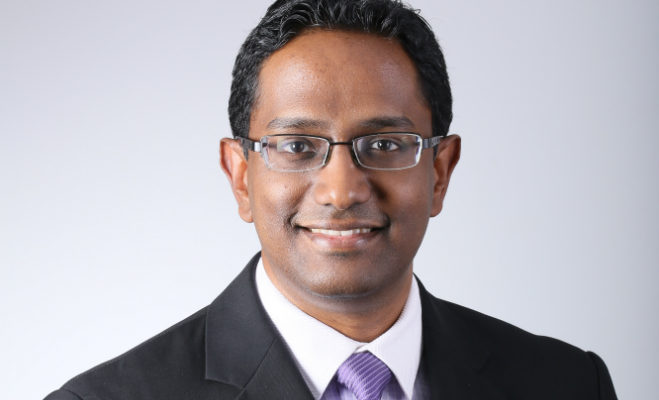
Health x Wellness
In Conversation with Dr. Ravindran Kanesvaran about geriatric oncology
We speak with Dr. Ravindran Kanesvaran (RK), Consultant Medical Oncologist at the National Cancer Centre Singapore (NCCS) about how recent developments in geriatric oncology can help patients better.
Dr. Kanesvaran is currently the President of the Singapore Society of Oncology (SSO) and the Singapore Geriatric Oncology Society. He is the National Representative for Singapore in the International Society of Geriatric Oncology (SIOG).
The Active Age (AA): Please share about recent developments in your field that will help make diagnosis and care better for patients.
RK: In the field of geriatric oncology, which concerns cancer in the elderly, the key assessment tool which has enabled a more holistic care of elderly cancer patients has been the use of comprehensive geriatric assessment.
This tool comprises a multi-prong approach looking at a patient’s physical, functional, mental, emotional state, nutrition and social support.
We also treat the other medical problems that afflict them and try to minimise poly-pharmacy, which is the use of too much unnecessary medication during treatment.
AA: What are the more common types of cancer and how can these be self-identified?
RK: For men, the 3 most common cancers are colorectal cancer, lung and prostate cancer. For women, it is breast, colorectal and lung cancer.
Of all these cancers, the cancers which have screening tools that have been proven to pick up cancers early in the general population are colorectal, breast and prostate cancers.
However, specifically for prostate cancer screening, it is important to consult your doctor and discuss the pros and cons of screening before deciding on whether it is a viable course of action.
AA: What are some of the triggers for these cancers?
RK: Most of these cancers are triggered by poor lifestyle habits. Smoking, high alcohol intake and obesity are three key factors that contribute to higher rates of cancer in the community such as lung and breast cancer. Poor dietary habits with an increased consumption of red meat and low dietary consumption of vegetables and fruits contribute to these cancers as well, such as colorectal cancer.
AA: Some people think that cancer is genetic and that there is no point in avoiding triggers associated with environment or nutrition. Any opinions?
RK: This is not true. In fact, nearly 80 percent of all cancers are associated with environmental or nutritional triggers. A good diet and healthy lifestyle may help prevent most people from getting cancer.
AA: How can a family (and friends) best support someone with cancer?
RK: Cancer patients bear the physical distress of the disease as well as go through emotional turbulence as well. Therefore, having close friends and family members come together to support can help the patient tremendously. Very often, all the patient needs is a listening ear. Keeping them company as they go through treatment, such as hours of chemotherapy, can go a long way in alleviating the feeling of loneliness that engulfs them.
AA: Some cancer patients live for hope, that there will be a breakthrough in new types of treatment; whereas others decide to do away with treatment and live life even more fully. Is there a middle ground perspective from the doctors and nurses that are helping the patient?
RK: Yes, it has always been a challenge striking a balance when it comes to deciding treatment for terminally ill cancer patients. The key element would be to explore the patient’s goals. Importantly, any decision regarding treatment should come from the patient themselves after an honest discussion about prognosis as well as the pros and cons of treatment.
There is no correct answer here.
Some patients are keen to fight all the way and want to exhaust all possible treatment options regardless of the risks involved or the low benefit ascribed to it. From a physician’s perspective, we will continue to treat such patients as long as their quality of life (QOL) is preserved while undergoing these new treatments.
There are others whose goal is quality of life and not to extend their lives if there is a chance that treatment may impair their QOL. As oncologists, we respect that and support these patients symptomatically as their cancer progresses with time.
AA: Any comments about living or helping someone deal with cancer?
RK: It is not easy helping a cancer patient through their journey. It requires a lot of time, patience and love. For caregivers of cancer patients, whilst it is important to provide as much support as possible for their loved ones, it is also important for them to take care of themselves. Caregiver burden from caring from cancer patients is usually high and as such caregivers need to have some respite on a regular basis. It is also important for them to seek help if they feel that caregiver stress is affecting their relationship with the cancer patient in a negative way.









